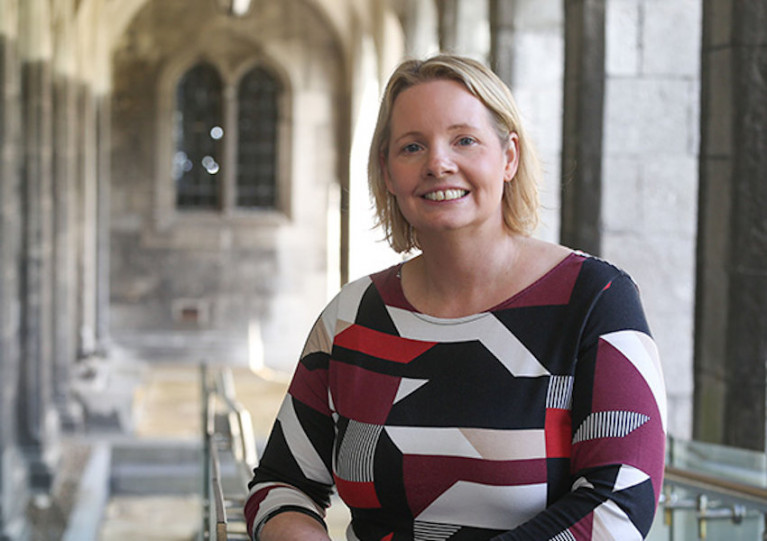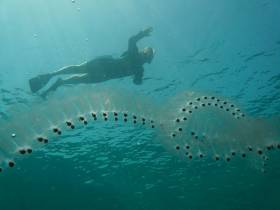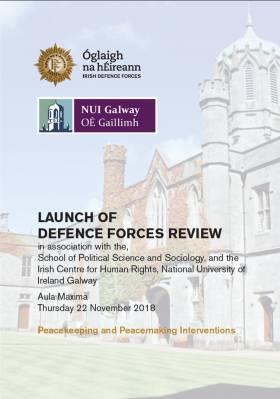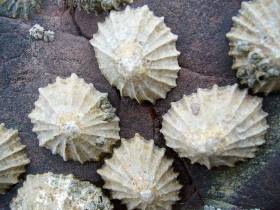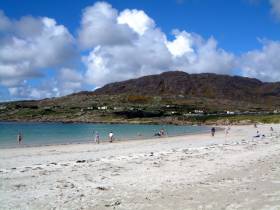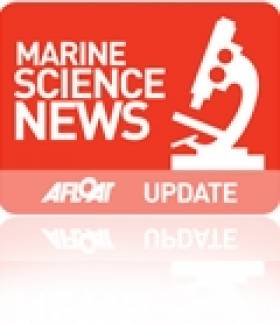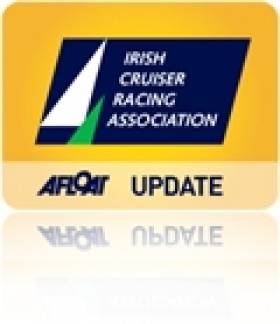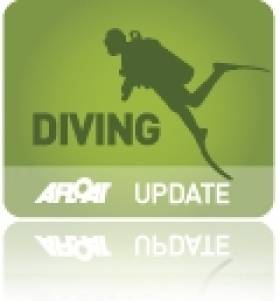Displaying items by tag: NUI Galway
Scientists at NUI Galway warn that a deadly bacteria found in many highly rated sea swimming spots in Ireland is not currently tested for as EU regulations do not require it.
According to The Irish Independent, reseaechers with NUI Galway’s PIER Project found that more than half (57%) of all samples it collected from coastal bathing areas tested positive for Shiga toxigenic Escherichia coli (STEC).
Lake and river bathing areas fared even worse, with 78% of sites samples showing signs of the particularly virulent form of E. coli.
The researchers said all of the sampled sea bathing areas — in Galway, Cork and Fingal — that had STEC present have been rated good to excellent for water quality by EU standards.
“These findings highlight the need to consider revision of current EU bathing water quality monitoring criteria,” the PIER Project’s Professor Dearbháile Morris said.
The Irish Independent has much more on the story HERE.
More than 90% of samples taken from Irish rivers show the presence of E. coli, according to a new study from NUI Galway.
And researchers found that the toxic bacteria was also present in bathing waters which pass muster with the EU’s water quality criteria.
Prof Dearbháile Morris and Dr Louise O’Connor at the School of Medicine, NUI Galway, led the study which is due to be presented at this year’s European Congress on Clinical Microbiology and Infectious Diseases.
With European data showing Ireland has had the highest incidence of human infection with Shiga-toxigenic E. coli (STEC) among EU member states for many years — reporting 10 times the EU average in 2017 — the team looked at recreational waters for the presence of the bacteria.
Overall, nearly two thirds of the 75 samples (65%) tested positive for genetic markers of STEC. More than half (56%) of seawater samples were positive, as were three quarters of lake samples.
But just one of 15 river samples tested showed no trace of STEC.
Prof Morris says the high detection rate highlights “the need for further investigation to establish the scale of the problem, not only in Ireland but globally”.
This includes bathing waters in Europe and elsewhere which “are not routinely monitored for the presence of STEC”.
Microplastic Consumed By Plankton May Interrupt Oceans’ Carbon-Capture Abilities, Says NUI Galway Study
Microplastic ingested by plankton may greatly impair our oceans’ natural carbon-capturing abilities, according to a new study from NUI Galway.
Marine scientists at the university’s Ryan Institute found that microscopic particles of plastic waste in the world’s oceans are interfering with the food chain that cycles CO2 from the surface to the floor, as The Irish Times reports.
The cycle involves the absorption of CO2 from the atmosphere by algae on the ocean surface via photosynthesis. This algae is a food source for zooplankton such as salps, whose faecal matter sinks to the ocean floor.
As much as half of all CO2 produced by humans over the last 200 years has been captured at the bottom of the world’s oceans in this manner, the scientists say.
However, the team have identified that when salps ingest algae along with microplastic particles, their excretions do not sink to the bottom as fast, and may be broken down closer to the surface to release more of their trapped CO2.
“It is very important to point out our study was carried out in a laboratory,” said Dr Tom Doyle of UCC, a partner in the research.
“We now need to go out into the field to further test our hypothesis by quantifying the abundance of microplastics found in salps and their faecal pellets in different areas of our oceans.”
The Irish Times has more on the story HERE.
Defence Forces Review 2018 Open to Public Attendance in NUI Galway
#NewsUpdate - The Defence Forces Review 2018, in association with the School of Political Science and Sociology will be held in NUI Galway next week, on Thursday 22 November.
The event is also been held with the Irish Centre for Human Rights, at the National University of Galway. The Review entilted Peacekeeping & Peacemaking Interventions, is open to the public and free of charge to attend (registration at 9pm) for event starting at 10am in the college's Aula Maxima.
2018 represents the 60th Anniversary of when in 1958 Irish troops were first deployed on a UN mission since the foundation of the State as Military Observers (UNMOs) in Lebanon. It is also the 40th Anniversary of an Irish Infantry Battalion being deployed to UNIFIL in South Lebanon, where the Defence Forces maintains a significant presence.
It is therefore fitting that this years edition of the DF Review should examine a key debate for our times, namely the evolution, development and indeed relevance of Peacekeeping and Peacemaking Interventions; a debate never more focused in view of the continuing catastrophic conflict in Syria and the ripple effects of same including the ongoing refugee crisis.
For further reading on the Review (incl. previous years to download) in addition for the event's full programme click the (pdf) to include list of speakers.
‘Super Healing’ Limpets & Potentially Lifesaving Sea Sponges Among Recent Irish Marine Science Firsts
#MarineScience - Researchers at Trinity College Dublin have identified ‘super healing’ capabilities in limpets, as Trinity News reports.
The small molluscs, which can be found in coastal areas all around the world, were studied for a paper in the Journal of the Royal Society Interface.
Trinity scientists found that the limpets they studied were able to sense minor damage to their shells from weathering or predator attacks, and repair them much in the way mammals heal broken bones.
Meanwhile, sea sponges recently discovered in Ireland’s deep ocean territory could hold special medicinal properties, according to The Irish Times.
Samples taken during the recent Marine Institute expedition are being tested for their effectiveness in treating cancer, Parkinson’s disease, Huntington’s disease, epilepsy and other conditions.
The relevant chemicals are produced by the sponges as part of their defences against competing marine organisms, and NUI Galway’s Dr Louise Alcock hopes to see positive results within the next year.
Budding Coastal Researchers, Don’t Miss This PhD Funding Call
#MarineScience - This Friday 16 February is the deadline for applications to the Hardiman PhD Scholarships — and if beaches and coastal research are your passion, NUI Galway lecturer Eugene Farrell wants you to get in touch.
High achievers with an appetite for research and creativity are urged to submit their interest in the funding call which can provide a stipend of €16,000 per annum plus fees for four years.
Details on eligibility and how to apply are available from the NUI Galway website HERE.
Open Lecture On Ocean Acidification At NUI Galway
#MarineScience - NUI Galway will host a public seminar examining ocean acidification next Wednesday 16 September.
Ocean acidification arises as a result of the ongoing decrease in the pH of the Earth’s oceans, caused by the uptake of carbon dioxide from the atmosphere.
One of the world-leading authorities on ocean acidification, Dr Richard Feely of the National Oceanic and Atmospheric Administration (NOAA) Pacific Marine Environmental Laboratory in Seattle will discuss the present and future implications of increased carbon dioxide levels on the health of our ocean ecosystems and related ocean-based economies.
The lecture will take place at 7.30pm in the Aula Maxima at NUI Galway and is free to the public. Advance registration is advised as the number of places is limited. To register click HERE.
#deepsea – An international research team, led by scientists from NUI Galway, is currently exploring the Whittard Canyon deep-sea submarine canyon system in the North East Atlantic onboard the Marine Institute's RV Celtic Explorer.
Researchers from Ireland, the UK, the USA and Germany are using the Institute's ROV Holland I to study the diversity of deep-water animals and relate this to geology and ocean currents.
The Whittard Canyon system is at the continental margin approximately 250 miles SW of Cork, covers an area of 2000 square miles, and is home to vulnerable marine ecosystems of cold-water corals, deep-water oysters and file clams. But new research is also revealing a remarkable diversity and abundance of rare black corals, which are protected under international legislation.
"The extreme shape of submarine canyons seems to affect the water flow within them in such a way as to deliver nutrient rich waters to particular parts of the canyon system. This allows diverse ecosystems to flourish. Our research is attempting to understand these processes so that we can predict where the most vulnerable ecosystems are likely to occur and therefore ensure the environment is protected," explained Dr Martin White of NUI Galway's Ryan Institute, and the expedition's chief scientist.
According to Dr Louise Allcock, also of NUI Galway's Ryan Institute, "Black corals are particularly vulnerable to any sort of impact. They grow extremely slowly and dating studies have shown that some species live for thousands of years."
The Whittard Canyon system is huge, with meandering branches extending over an area of more than 80 by 20 miles. Mapping the system, much of which is in depths below 1500m, to detect vulnerable species is difficult. Therefore the team hopes that the new data will reveal the factors that determine which species occur where.
ROV Holland I provides a way of sampling deep-sea animals without impacting the ecosystem. The team is also providing deep-sea sponge samples to scientists searching for novel pharmaceutical compounds. If the chemists find interesting compounds such as antibacterial and other pharmaceutical properties in the sponges, they will aim to work out how to synthesize them in the laboratory. This is the first step in the production of new drugs.
The scientists are blogging about their experiences and discoveries aboard RV Celtic Explorer throughout the survey (June 6th – 21st) on the blog scientistsatsea.blogspot.ie and on twitter via the hashtag #ce14009
The research survey is carried out under the Sea Change strategy with the support of the Marine Institute, funded under the Marine Research Sub-Programme by the Irish Government.
NUI Galway Campaign Awarded ICRA's 2012 Boat of the Year Trophy
#boatofthe year – The NUI Galway campaign sailing Martin Breen's Galway Reflex 38 yacht has been named ICRA's Boat of the Year. The prize was presented in Kilkenny this afternoon and applauded by a wide cross section of delegates at the one day ICRA conference including leading sail makers, race organisers, Olympic race officer Jack Roy and Volvo Ocean Race (VOR) champion Damian Foxall.
The NUI campaign was picked ahead of six other boats shortlisted for the prize.
NUI Galway campaign manager Cathal Clarke said the boat's aim in 2012 was to inspire other sailors from the West Coast to undertake similar projects and for the next generation of Volvo Ocean Race sailors to get out there and get sailing.
The ICRA Judges said the student based campaign embodied the spirit of ICRA with a campaign that featured competition in many venues around the country.
Following an overall win in the 2011 Dun Laoghaire to Dingle Race as 'Galway Harbour' Martin Breen's Reflex 38 was prepared for the 2012 Round Ireland by students of NUIG and raced as 'NUIGALWAY'. The students won Class 2 and were the first Irish fixed keel boat, finishing sixth overall.
They were also class 1 winners in the Pwllheli to Wicklow ISORA race in preparation for June's Round Ireland race.
The boat is raced by a separate inshore crew and in 2012 they competed in the 2012 ICRA Nationals in Howth, Cork Week and Calves Week. In 2013 they will plan to race at the ICRA Nationals in Fenit and also in the Sovereigns Cup in Kinsale.
The NUI Galway Round Ireland crew were Ben Scallan (helm), Eoghan McGregor (helm), Joan Mulloy (trimmer), Mark Armstrong (trimmer), Cathal Clarke (trimmer), Back row (left to right) Eoin Breen (bowman), Conor Kinsella (Mainsail trimmer), David Fitzgerald, (bowman), Louis Mulloy (bowman) and Ruaidhri De Faoite (mainsail trimmer).
One of the main aims of NUI campaign was to promote the home-grown sailing talent in Galway. Boat skipper, Cathal Clarke said: "The vision of this project is to prove the wealth of sailing talent here on the west coast and to encourage the next generation of Volvo Ocean Race sailors to get out there and get sailing. We aim to inspire other sailors from the region to undertake such projects in the future."
NUI Galway Hosts Talk on Historical Wreck Diving in Ireland
#DIVING - The Sub-Aqua Club at NUI Galway and the Galway-Mayo Institute of Technology welcomes diving expert Edward Bourke to the NUI Galway campus on 18 October to give a talk on historical wreck diving in Ireland.
The talk will take a look at some of the exploits of wreck and salvage dives in Ireland over the years, exploring the nation of the Irish coast as a hotbed of pioneering subaquatic activity, driven mostly by the recovery of shipborne cannons - not only because of their expense, but also to prevent their falling into the hands of insurgents.
Bourke will give his talk at the Siobhán McKenna Theatre in the Arts Millennium Building at 7pm on Thursday 10 October. The evening will be of interest to local historians and divers alike. And as much of the activity was on the west coast, there is some local maritime interest, too.
Edward Bourke is a microbiologist, maritime historian and diver with Viking Sub Aqua in Dublin for 30 years and has dived in Australia, South Africa, Spain, Croatia, France and UK as well as Ireland. He has published three volumes on Shipwrecks of the Irish Coast, cataloguing some 6,000 wrecks in Irish waters, as well as a book of Irish shipwreck photos and a volume on the wreck of the Tayleur at Lambay Island. A scientist with Diageo, Bourke's most recent publication is a history of Guinness.



























